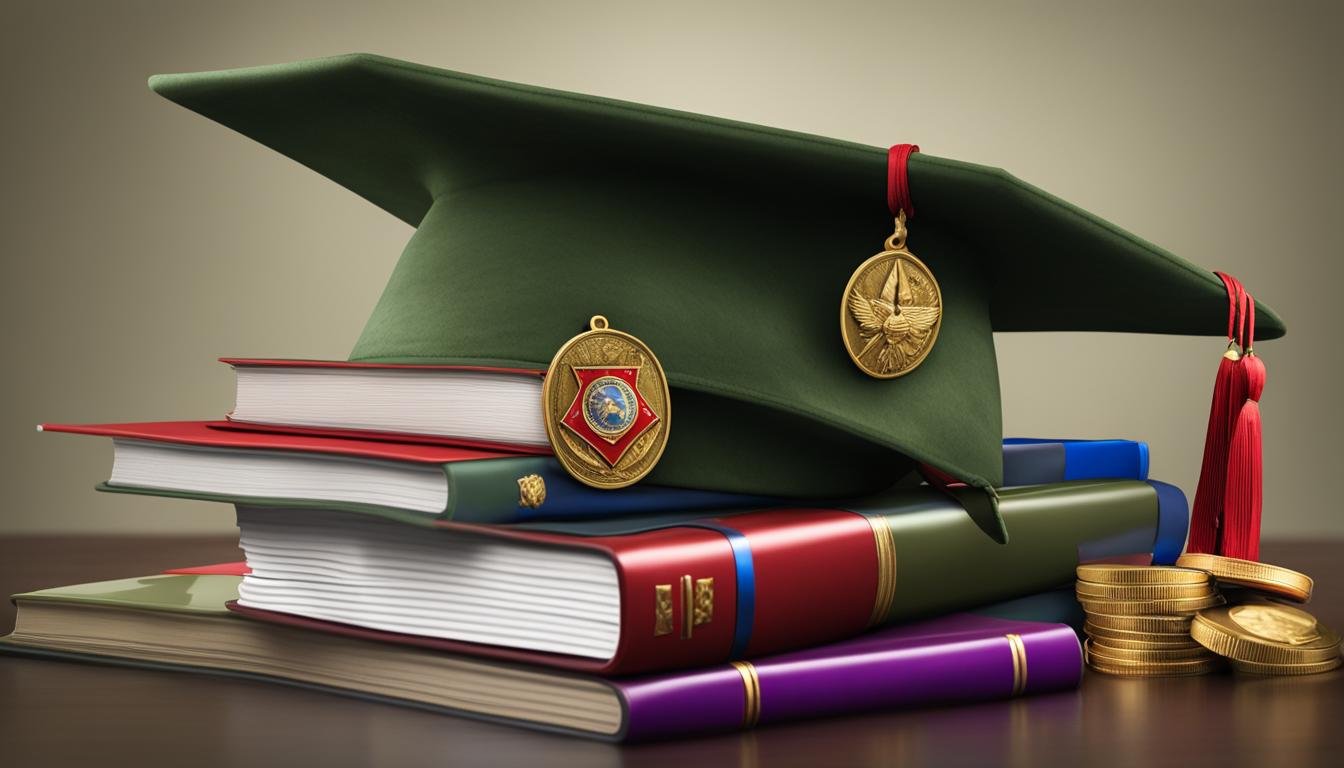Making the transition from military service to college life can be a daunting task. However, with the right preparation and support, veterans can successfully navigate the challenges of academic life after the military.
It is important for veterans to consider their career goals, academic abilities, and available resources before deciding to attend college. One key factor to consider is the availability of military education benefits such as the GI Bill, which can help cover the costs of tuition and other expenses.
Veterans can also benefit from the practical advice of those who have already made the transition to college, which includes not worrying about feeling “behind” their peers, choosing a college environment that suits their needs, considering shorter degree programs, connecting with other veterans, sharing their experiences in the classroom, and utilizing available resources for former service members.
By following these tips and utilizing available resources, veterans can effectively prepare for a successful academic life after military service.
Key Takeaways:
- Consider your career goals, academic abilities, and available resources before deciding to attend college.
- Explore the availability of military education benefits like the GI Bill to help cover tuition costs.
- Connect with other veterans on campus for support and a sense of community.
- Share your experiences in the classroom to provide a unique perspective.
- Utilize available resources for former service members, such as veterans’ counselors and educational support programs.
Tips for a Successful Transition to Academic Life after the Military

When preparing for college after military service, there are several tips that can help veterans successfully transition to academic life. It is important to remember that you are not alone in this journey; many veterans have successfully made the transition and thrived in their academic pursuits. Here are some key tips to consider:
- Don’t feel “behind”: As a nontraditional student, it is common to worry about being behind your peers who may be fresh out of high school. Remember that your life experiences in the military have provided you with unique skills and perspectives that will benefit you in the academic setting.
- Choose the right college environment: Consider factors such as campus atmosphere, class sizes, and the availability of online courses. Find a college that aligns with your needs and preferences, whether it’s a smaller community college or a larger university.
- Explore shorter degree programs: If you’re eager to enter the workforce sooner, consider pursuing a shorter degree program or a vocational training program. These options can help you gain valuable skills and qualifications in a shorter amount of time.
- Connect with other veterans: Building a strong support network is crucial during the transition to academic life. Seek out other veterans on campus or in your community to connect with. They can provide valuable advice, support, and camaraderie.
- Share your experiences in the classroom: Your unique perspective as a veteran can greatly enrich classroom discussions and interactions. Don’t hesitate to share your experiences, insights, and opinions with your peers and professors.
Remember to take advantage of the resources available to you as a veteran. Veterans’ counselors can provide guidance and support tailored to your needs, and educational benefits like the GI Bill can help cover the costs of tuition and other expenses. By following these tips and utilizing available resources, you can navigate the transition to academic life after the military with confidence.
Table: Overview of Academic Resources for Veterans
| Resource | Description |
|---|---|
| Veterans’ counselors | Professionals who provide guidance and support tailored to the needs of veterans transitioning to academic life. |
| GI Bill | Education benefits provided to eligible veterans to cover the costs of tuition and other expenses. |
| Veterans’ organizations | Organizations that offer support, resources, and networking opportunities for veterans in higher education. |
| Veterans’ centers | Physical spaces on campus dedicated to serving the needs of veterans, providing a sense of community and access to resources. |
| Tutoring services | Academic support services that offer one-on-one or group tutoring sessions to help veterans succeed in their coursework. |
These resources are just a starting point, and it’s important to explore what is available specifically at the colleges and universities you are considering. Remember, support and assistance are out there for veterans transitioning to academic life, so make sure to take advantage of them!
How Can Military Service Experience Prepare Me for Academic Life?
Military service experience can greatly aid in transitioning to college student life. The discipline, leadership skills, and time management honed in the military can all benefit academic success. Additionally, the real-world experience gained in the military can provide a unique perspective and maturity to handle the challenges of academic life.
Conclusion
Preparing for academic life after military service is a significant undertaking. However, with careful consideration of your career goals, utilizing available resources and support systems, and following the advice of those who have already made the transition, you can successfully navigate the challenges of adjusting to academic life after the military.
By taking advantage of military education benefits, such as the GI Bill, you can alleviate some of the financial burdens associated with tuition and other expenses. Connecting with other veterans on campus can provide a sense of community and support during the transition, ensuring you feel understood and surrounded by like-minded individuals.
Remember to fully utilize the available resources for former service members, such as veterans’ counselors, to address any academic or personal challenges you may face. Their expertise can help guide you through the adjustment period and ensure a smooth transition into academic life.
With the right preparation and support, you can embark on your new academic journey with confidence and thrive in your post-military goals. Adjusting to academic life after the military may have its challenges, but with perseverance and the right mindset, you are well-equipped to succeed.



